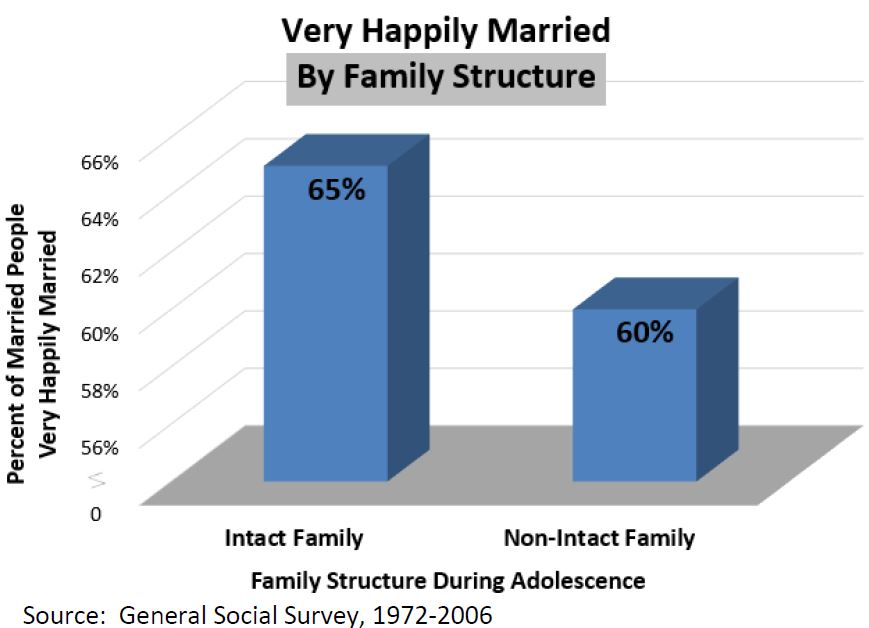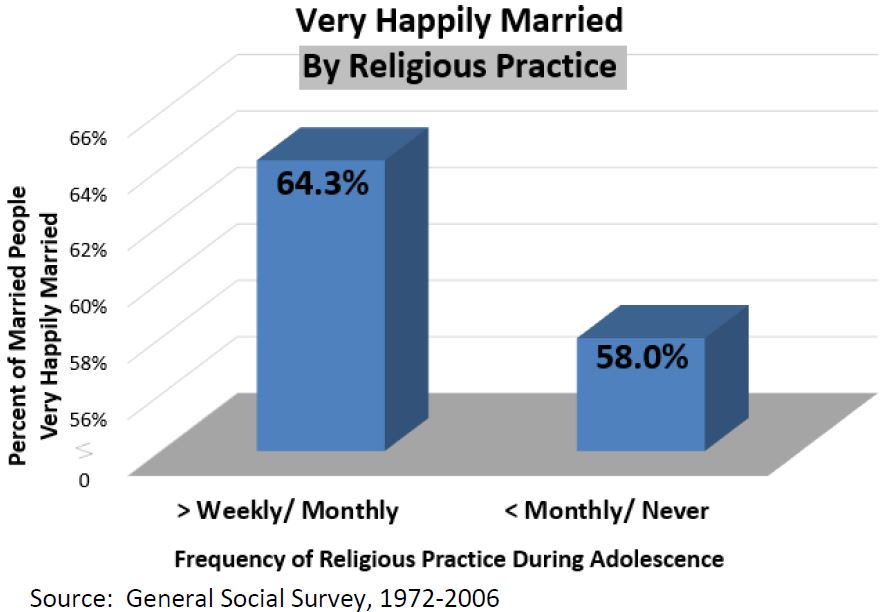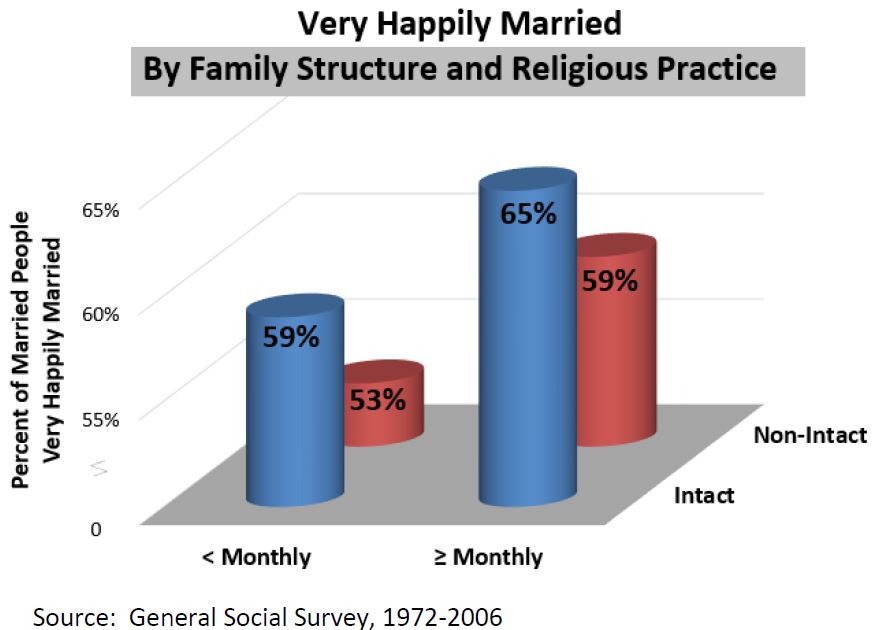Click Here to download “Marital Happiness by Family Structure and Religious Practice”
Marital Happiness by Family Structure and Religious Practice
Family Structure: According to the 1972-2006 General Social Survey, 65 percent of married adults who lived in an intact family as adolescents were very happy with their current marriage, compared to 60 percent of married adults who lived in a non-intact family. Religious Practice: The General Social Survey showed that 64.3 percent of married adults who attended religious services at least monthly as adolescents were very happy with their current marriage, compared to 58 percent of married adults who attended worship less than monthly as adolescents.
Religious Practice: The General Social Survey showed that 64.3 percent of married adults who attended religious services at least monthly as adolescents were very happy with their current marriage, compared to 58 percent of married adults who attended worship less than monthly as adolescents.
 Family Structure and Religious Practice Combined: The 1972-2006 General Social Survey indicated that 65 percent of married adults who attended religious services at least monthly and lived in intact families as adolescents were very happy with their current marriage, compared to 53 percent of married adults who attended religious services less than monthly and lived in non-intact families as adolescents. In between were those married adults who had attended religious services at least monthly but lived in non-intact families (59 percent) and those who lived in intact families but attended religious services less than monthly (also 59 percent).
Family Structure and Religious Practice Combined: The 1972-2006 General Social Survey indicated that 65 percent of married adults who attended religious services at least monthly and lived in intact families as adolescents were very happy with their current marriage, compared to 53 percent of married adults who attended religious services less than monthly and lived in non-intact families as adolescents. In between were those married adults who had attended religious services at least monthly but lived in non-intact families (59 percent) and those who lived in intact families but attended religious services less than monthly (also 59 percent).
 Related Insights from Other Studies: Paul Amato and Alan Booth of the Pennsylvania State University reported that strong parental religiosity led to fewer instances of parental marital discord and “that parents’ marital quality has a causal impact on offspring’s marital quality.”[1]
Bradford Wilcox also found that husbands who believed strongly in religious attendance and the importance of intact families had wives who reported high levels of marital happiness.[2]
The data indicate that the benefits of frequent religious attendance and the intactness of parents’ marriages will positively affect marital happiness in adulthood.
[1] Paul R. Amato and Alan Booth, “The Legacy of Parents’ Marital Discord: Consequences for Children’s Marital Quality,” Journal of Personality and Social Psychology, vol. 81 (2001): 627-638.
[2] W. Bradford Wilcox, Soft Patriarchs, New Men: How Christianity Shapes Fathers and Husbands (Chicago: University of Chicago Press, 2004), 178, 186. This finding is from www.familyfacts.org.
]]>
Related Insights from Other Studies: Paul Amato and Alan Booth of the Pennsylvania State University reported that strong parental religiosity led to fewer instances of parental marital discord and “that parents’ marital quality has a causal impact on offspring’s marital quality.”[1]
Bradford Wilcox also found that husbands who believed strongly in religious attendance and the importance of intact families had wives who reported high levels of marital happiness.[2]
The data indicate that the benefits of frequent religious attendance and the intactness of parents’ marriages will positively affect marital happiness in adulthood.
[1] Paul R. Amato and Alan Booth, “The Legacy of Parents’ Marital Discord: Consequences for Children’s Marital Quality,” Journal of Personality and Social Psychology, vol. 81 (2001): 627-638.
[2] W. Bradford Wilcox, Soft Patriarchs, New Men: How Christianity Shapes Fathers and Husbands (Chicago: University of Chicago Press, 2004), 178, 186. This finding is from www.familyfacts.org.
]]>
